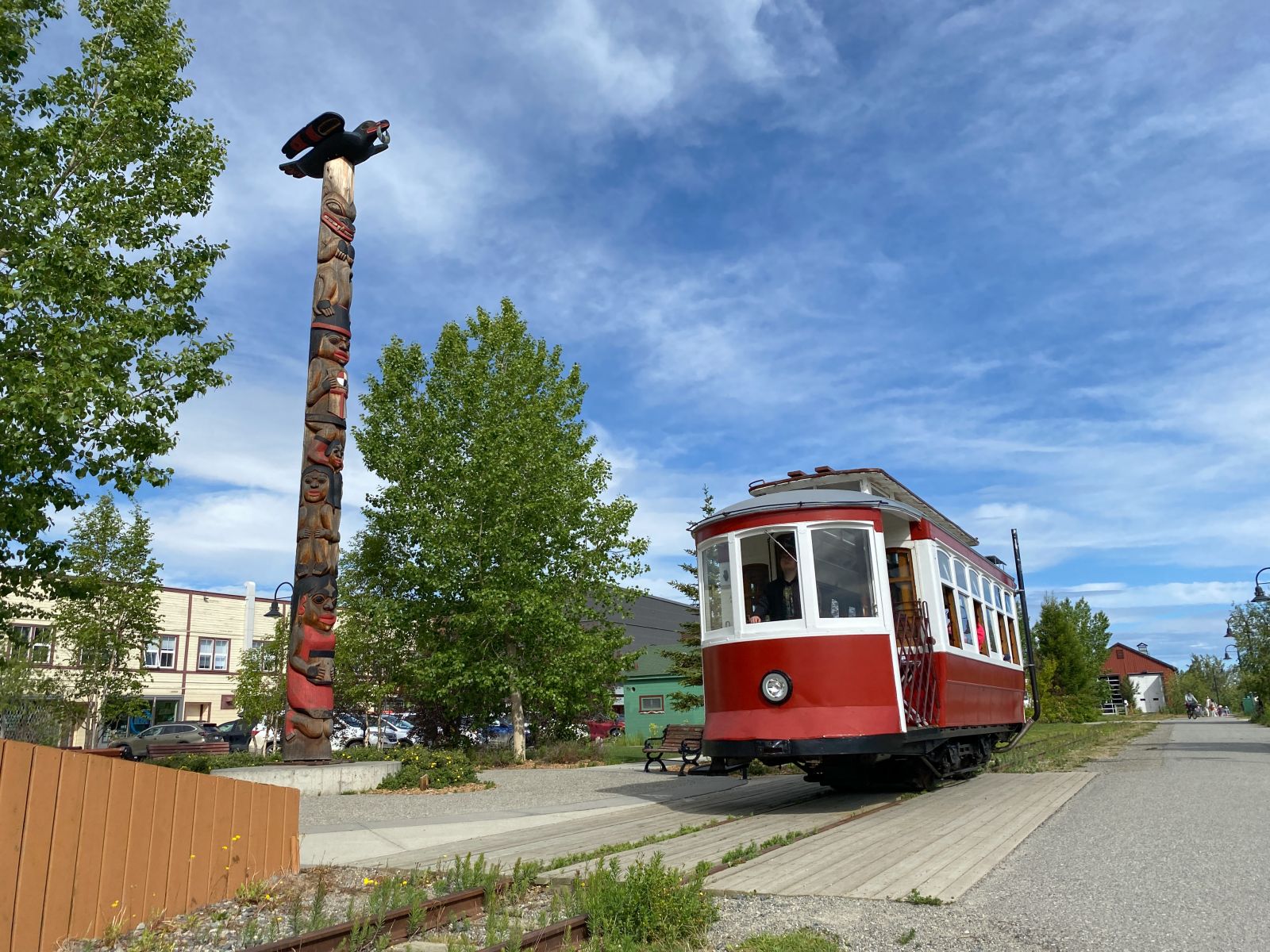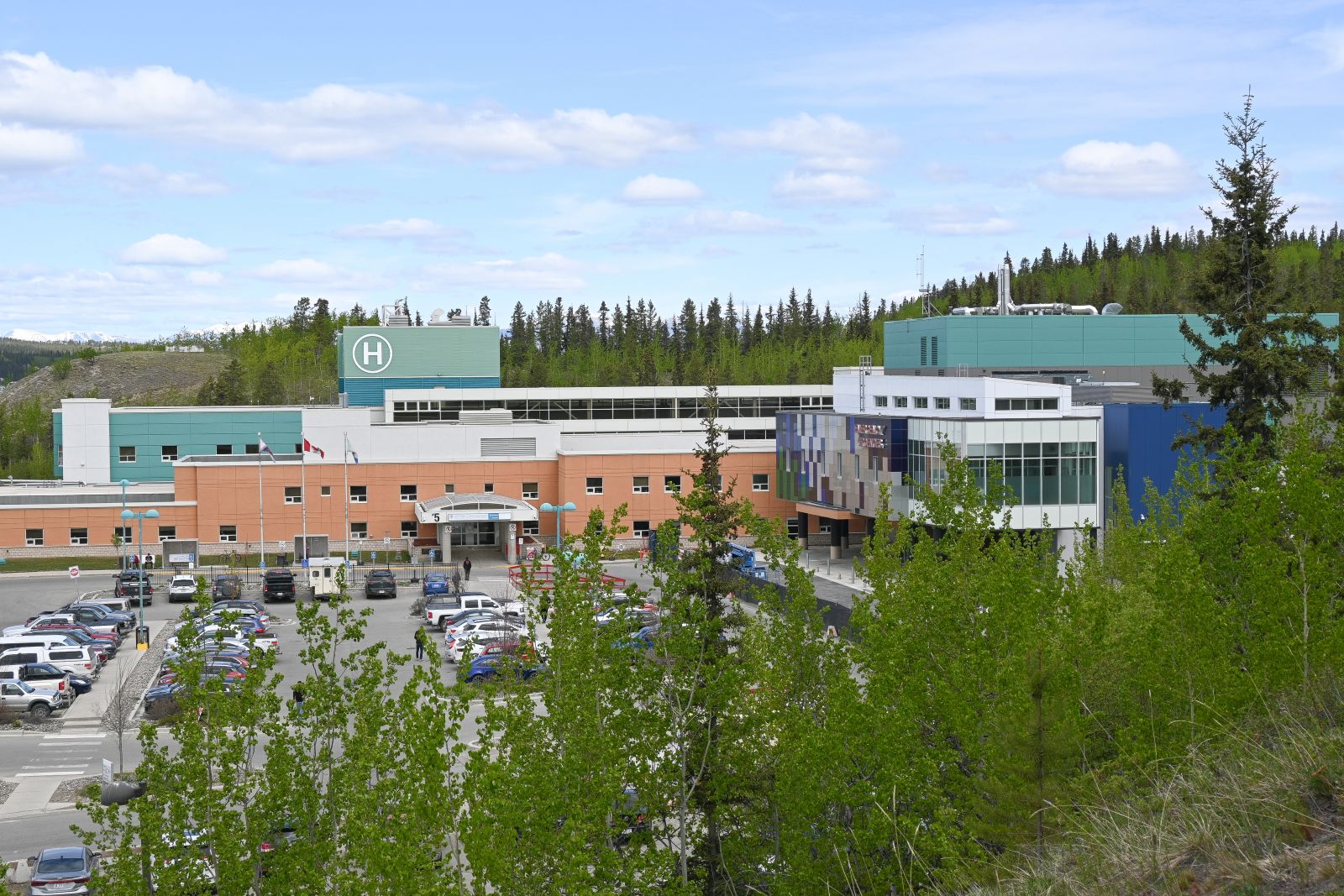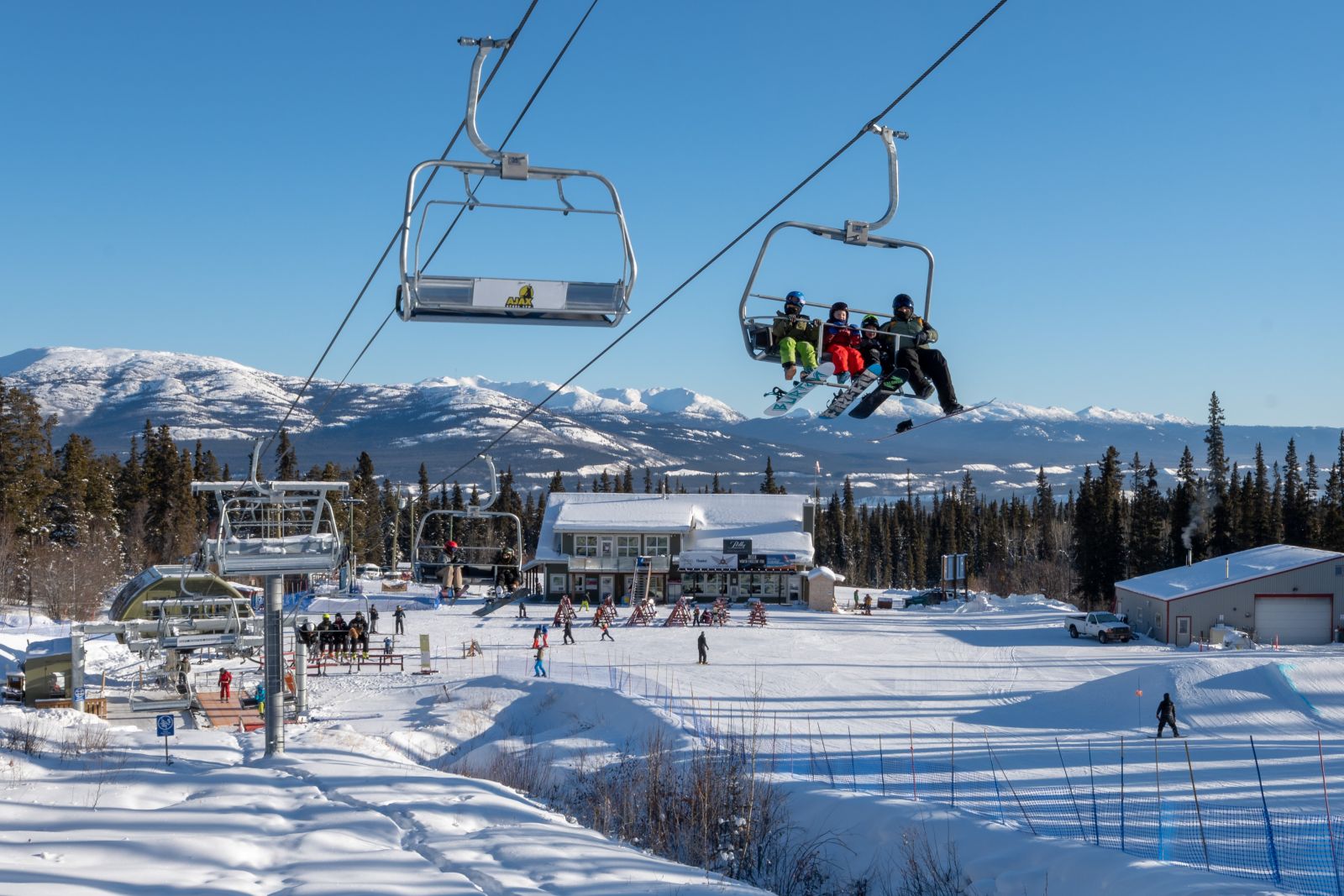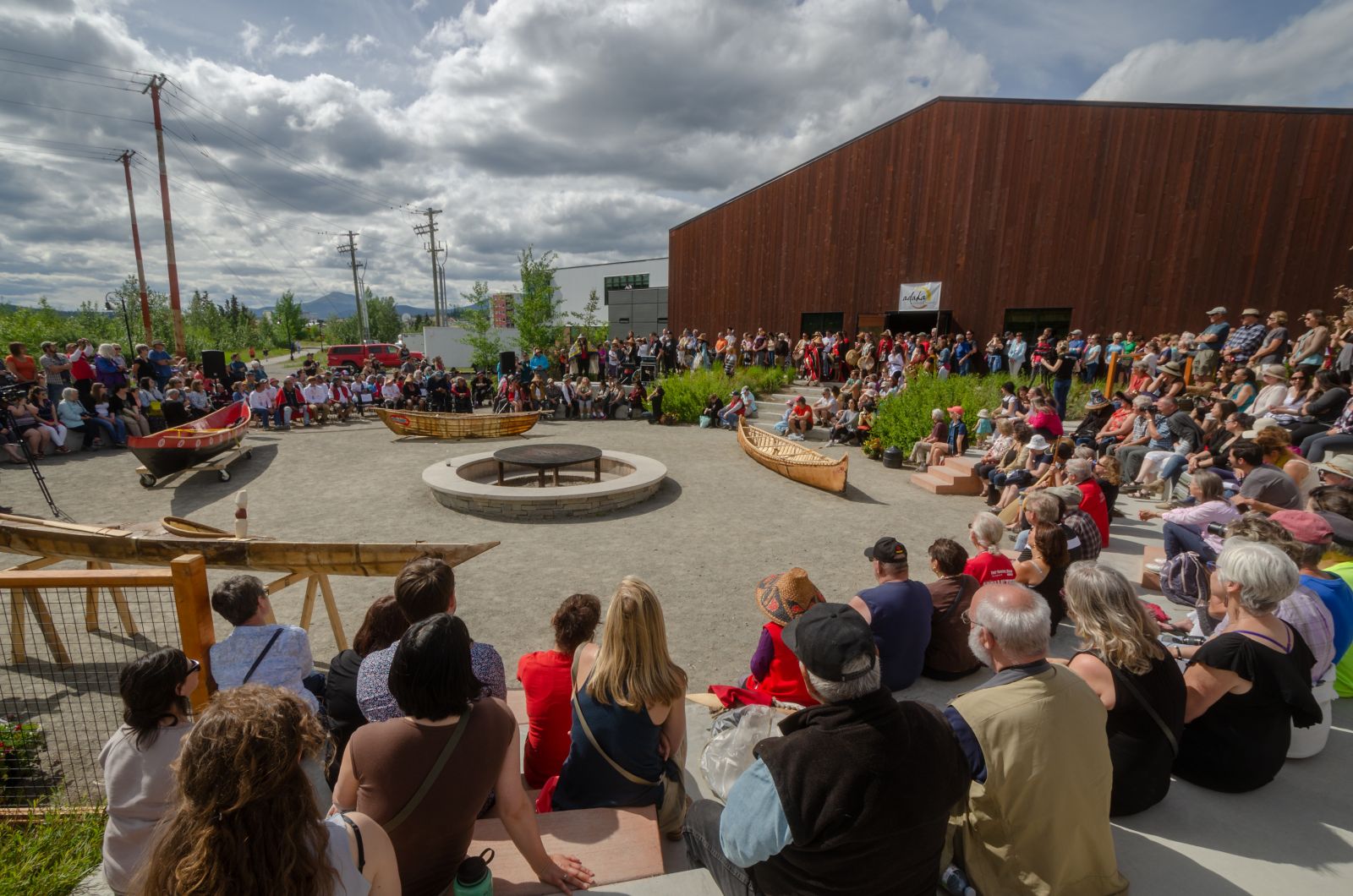Whitehorse is situated on the Traditional Territories of the Ta’an Kwäch’än Council and the Kwanlin Dün First Nation.
Located in the valley of the Yukon River, the Yukon's capital is both beautiful and bustling.
Whitehorse is the largest city in northern Canada with the amenities that people come to expect in a city, while still maintaining that "small town" feel.
Whitehorse's downtown core is vibrant. Explore independent coffee shops and cafés, local breweries and restaurants, museums, live music, small retailers and art galleries. Interspersed with these you'll see quirky heritage sites and historical buildings all throughout Whitehorse, including the S.S. Klondike sternwheeler, the Old Firehall, the White Pass & Yukon Route Railway Depot and the Old Log Church, as well as restored historic houses in Shipyards Park.
Whitehorse also boasts being a very active city and close to nature. The city has approximately 33.9 kilometres of trails per 1,000 residents. Compare that to the Canadian average of 0.9 kilometres! These trails are marked for walking, hiking, biking and cross-country skiing. Many people also enjoy taking to the Yukon River for fishing, boating and kayaking.




Quick facts
Population: 30,820 people
In 2011, the World Health Organization ranked Whitehorse #1 for cleanest air in the world!
Whitehorse has over 700 km of marked trails, including 85 km of groomed cross-country ski trails.

